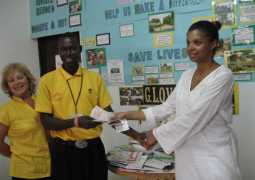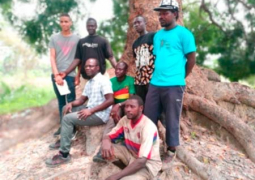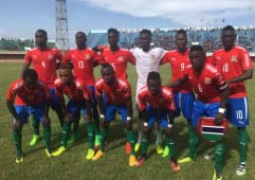The country representative of UNICEF to The Gambia, Mrs Aichatou Diawara-Flambert, has disclosed that more than 2.6 billion people do not have access to basic sanitation services, something she said many people take for granted.
Madam Diawara-Flambert’s statement was read on her behalf by Sally Sadie-Singhateh at the 4th annual Global Hand Washing Day celebrated this year in Jarra Soma, Lower River Region.
According to her, the gathering firmly demonstrated their unity for the common cause of promoting hand washing with soap across the region and the country as a whole.
“Today, more than 2.6 billion people do not have access to the basic sanitation services that many of us take for granted. As a result, hundreds of millions of people suffer from sanitation and hygiene-related illnesses that impact negatively on the developing world’s health sectors and economies,” she said.
The UNICEF country representative stated that, at any one time, half of all hospital beds in developing countries are filled with people suffering from water, sanitation, and hygiene-related diseases, and some 443 million school days are lost due to associated illnesses.
“All around the world, governments have adopted Global Hand Washing Day as a national celebration, ensuring that hand washing with soap is practiced and promoted throughout the year, and not just on October 15th.
“Today’s celebration is a clear testimony of the
“We know that the simple act of hand-washing with soap can reduce the incidence of respiratory infections by nearly 25 percent among children under five. The second largest killer of children under five is diarrheal disease, which is responsible for the deaths of more than 1 million children every year – this is more than AIDS and malaria combined,” she said, adding that hand-washing with soap can reduce the rate of diarrhoea of children by almost 50 percent.
Madam Diawara-Flambert further stated that in many developing countries, such as The Gambia, it is not the lack of soap that is usually the problem.
“The vast majority of poor households have soap in the homes, but this soap is often intended for purposes other than hand washing,” she noted.
She said promising innovations and partnerships, like the public private partnership for the promotion of hand-washing, are required to achieve our goal.
“The use of market techniques can also be influential in motivating people to practise hand-washing with soap. We need to combine and strengthen our efforts to scale up hand-washing with soap, as well as successfully reach the Gambian children who are dying from diarrhea and pneumonia, and the Gambian population as a whole,” she concluded.




